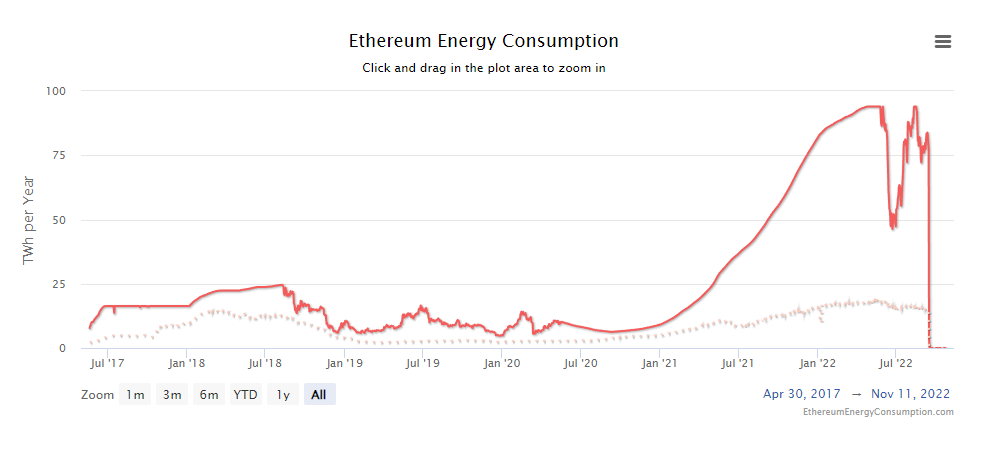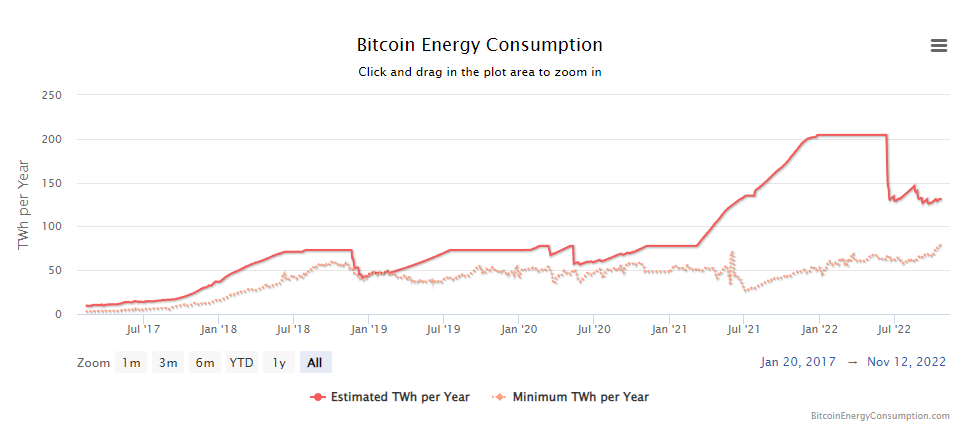A topic of discussion often glossed over in cryptocurrency is the amount of electricity used when computers are mining or validating transactions. According to a paper from the Columbia Climate School, Bitcoin alone consumes an estimated 150 terawatt hours of electricity per year. Argentina, a country of 45 million people, consumes less electricity than the bitcoin network. This electricity consumption also produces around 65 megatons of carbon dioxide annually. Which puts bitcoins emissions on the same scale as countries like Greece.
This immense energy consumption is due to the validation process of the network. Bitcoin uses a system called proof-of-work. In this system, specialized computers try to guess a winning number that serves to validate transactions and create new coins. Ethereum, a bitcoin competitor, has just implemented a significant network upgrade that includes a new system of validation called proof-of-stake. In this system, Ethereum validators verify new transactions and receive ether as a reward. This has allowed energy consumption and carbon emissions to fall dramatically for the Ethereum network. Energy consumption for Ethereum in august 2022 was roughly 94 terawatt-hours per year. After the switch to proof-of-stake, the network has decreased its energy consumption to an estimated .01 terawatt-hours per year.

From: https://digiconomist.net/ethereum-energy-consumption

From: https://digiconomist.net/bitcoin-energy-consumption
Sources:
https://news.climate.columbia.edu/2022/05/04/cryptocurrency-energyhttps://ethereum.org/en/energy-consumption/
https://www.cnbc.com/2022/10/22/how-ethereums-merge-made-crypto-mining-more-sustainable.html

